Beware, Some Little Spoilers
Quick summary for folks who haven’t seen the show: Ted Lasso is a comedic drama on Apple TV+ (think Parks and Recreation and Schitts Creek). The plot centers around a football club in the U.K., and the journey of their new manager—a former American football coach from Kansas. Ted is an annoyingly positive, affirming, and supportive person—there’s plenty of room to talk about “toxic positivity.” The world is something of a fantasy: there’s some jerky behavior, but most of the time people directly and compassionately address their conflicts in a way that makes us feel dang, if only people (especially men and folks in power) were actually this responsive and self-reflective.
Lesson #1: “That kid has forgotten more about this game than I’ll ever know.”
Immediately upon beginning his work as manager, it is apparent that Ted knows nothing about football. He doesn’t know the language, he doesn’t know the rules, he doesn’t know the players, he doesn’t even know the basics of scoring. But, Ted recognizes that he can still be successful because talent and knowledge are held by others on the team. His philosophy is that he doesn’t need to know everything, he needs to elevate people with more skill than him and to see each person’s unique talents, potential, and motivations. Then, together they form a strategy that works with those talents.
Among Ted’s first acts as coach are:
Recognizing the immense knowledge held by a relatively low-level staff member (Nate) and putting recognition, money, and time into making him an essential part of the team.*
Acknowledging directly to the captain (Roy Kent) how important he is to the success of the team. “If we’re gonna make an impact here, the first domino needs to fall right inside of that man’s heart.”
Building a positive relationship with the team’s owner, by putting time and energy into something she loves (biscuits!) and seeking her advice as a real show of real respect.
Helping players see that their mistakes aren’t representative of their talents, and to look toward the future (be a goldfish).
Providing an opportunity for the team to identify their needs and then quickly being responsive to fulfilling those needs (shower pressure).
Making sure all the players are celebrated and given time to shine, even if it means risking a loss (taking the highest scoring player off the field).
Ted doesn’t always get support for these attempts—in fact, often he gets downright rejected and called names. By rolling with resistance, he is able to go back and continue trying to develop the relationship, talent, and confidence of the people essential to his goal.
*If you’ve finished Season 2, you know this comes with some blow back—look below the spoiler alert for more discussion on this.
Lesson #2: “You can outscore your opponent and still lose.”
Throughout Ted Lasso, there is a theme of doing better than those who have wronged us, by focusing on the relationships we value.
“I can’t control my feelings.”
“Well then by all means you should let them control you!”
Ted calls out Rupert’s bad behavior—the former club manager who manipulates people in order to shore up his own power—without duplicating the behavior or putting Rebecca (Rupert’s primary target) in a vulnerable position.
Through Higgins (“I’m sick of it. You won’t take away your pain by constantly punishing Rupert”), Rebecca realizes that her attempts to hurt Rupert are actually hurting people she cares about.
Keeley is kind to a woman who came to an event with her boyfriend, rather than duplicating competitiveness and jealousy.
Roy reigns in his jealousy when someone makes a move on his girlfriend.
Roy and Jamie show up honestly to the difficulties of their relationship—”You tell me why I’m a prick and I’ll tell you why you are.” They don’t have to be friends or to like each other, but they can be honest with each other and have a relationship that doesn’t harm the people around them—their team, their friends.
When Nate seems to be enjoying that a particular player is being “put in his place,” Ted squashes the vengeful vibe right away: “This is a no schadenfreude zone.”
Keeley tells Jamie, “You’re a battler Jamie… but maybe someday you should stop battling people that just want to help you.”
Roy’s niece tells a boy who bullied her that he hurt her, without publicly shaming him—she goes to his house and holds up signs (Love Actually) to tell him he can do better.
“Those people who belittled me, they thought they had everything all figured out. So they judged everything. And they judged everyone. And I realized, their underestimating me—who I was had nothing to do with it.”
Lesson #3: “Being Accountable Matters”
Throughout the series we get numerous examples of people compassionately accepting feedback, taking responsibility, and changing their behavior. We also see a belief that people can and will do better with directness and support.
“Imagine doing something unforgiveable to someone who doesn’t deserve it and then having to look them in the eye and tell them what you’ve done.”
“I don’t have to imagine, I’ve done it.”
“What would be the point of telling Ted now, it won’t change anything.”
“It’ll change how I feel about you.”
Ted gifts Sam, a Nigerian player, an army figurine because it is meaningful to him. Sam responds by saying, “Is it okay if I don’t keep this? I don’t share your fondness of the american military.” Rather than becoming offended or defensive, Ted recognizes immediately that their positions and experiences are different and responds: “Oh, sure, imperialism” and accepts the present back, with humility.
“Don’t use me as a prop in your fight, it made me feel like an idiot.” Keeley apologizes to Roy for bidding on him during an auction, just to punish her boyfriend.
Extremely awkwardly Rebecca admits a big mistake to Ted (under some positive pressure from her bff). Ted forgives her, by empathizing with the reasons that led to her actions.
Higgins admits a big mistake to Rebecca—but he doesn’t let the fact that he has made his own mistakes, prevent him from letting Rebecca know that she is also doing something hurtful. “You’re right. I should have been braver, and I’m sorry for that. But I’m saying this to you now—stop it. Or, I quit.”
Ted apologizes to the team for hiding his struggles with anxiety.
Ted admits to his skepticism about therapy, identifying that the potential issue is with him and his history with feeling betrayed by therapy.
Keeley says, “I used what was supposed to be a fun night to pressure you to do something you don’t want to do and that was tackey. I’m really sorry for it.”
Rather than asking Ted about a photo he saw of Jamie and Ted together, Sam yells at Ted and accuses him of going behind the team’s back. When he realizes that he misunderstood, he says “Oh now I feel awkward. Coach I’m so sorry.” Ted says, “It’s okay! You’re a leader on this team, I want you to speak your mind.” Sam then accepts the consequences—running laps.
Sam is hired to be a representative of Dubai Air, an airline that is owned by an oil company that has been devastating the environment in his home country of Nigeria. When Sam is confronted with this fact by his father, he uses his influence to share this information and protest the airline, despite the potential risks to his job and future career.
Related but unrelated, there is an incredible scene between Coach Beard and Coach Lasso (S1E9) where they have a significant disagreement. Because there is a culture of accountability and social support, Beard directly expresses a fiercely dissenting opinion with Lasso and lets him know that he thinks his priorities are not just wrong but selfish. The next day, their relationship is just as strong. If Lasso had discouraged people from sharing their thoughts and discouraged honesty, would this have been possible?
WARNING: THE BIGGEST SPOILER BELOW THIS LINE
Lesson #4: “Ain’t nobody in this room alone.”
Let’s talk about Nate.
In all of my Conflict Skills courses we talk about human needs theory and how all people have basic material and social needs. Two of these social needs, described by John Barton, are belonging (the need to be accepted by others and have strong personal ties) and self-esteem (the need to be recognized by oneself and others as strong, competent, and capable). These needs are interlinked in that they rely on others’ actions to let us know that we matter, that we have value, that there is a place in the world for us. The impacts on a person who is alienated (the opposite of belonging) have actually been studied: people who have been told that they do not belong in a family, community, or dominant society have been proven to experience physical pain (referred to as "social pain") from rejection. They are often hypervigilant when receiving and interpreting communication from others, because people have so often proved to them that they don’t matter, are invisible, are uncared for and they begin to expect that. Hypervigilance causes increased heart rate, physical reactivity/startle response, paranoia/suspicion, and difficulty sleeping/resting/relaxing.
In Ted Lasso, we meet a character named Nate in the very first episode. While Nate is dealt with very comically in the first season, his situation is actually pretty dire when Ted arrives—he is so used to being ignored, forgotten, and dismissed that he doesn’t even believe Ted when Ted genuinely wants to know his name and hear his opinions. For folks of color like Nate, this is probably a recognizable experience: your talents, your knowledge, and your presence go unrecognized and it would be easy to accept that these rejections indicate that you have no value.
When Ted shines a bright light on Nate, welcomes him deeply into the team, encourages him to speak his mind, and empowers him to build his self-esteem, Nate begins to belong and to believe in himself. Toward the end of Season 1, something changes in Nate. His self-esteem turns into ego, arrogance, even narcissism. He begins to use insults to show his position—something that has been modeled for him over the course of his life as a symbol of power, authority, and belonging. He has never experienced so much attention and he revels in it. But—like all deeply rooted wounds—his fear of rejection and alienation are underneath it all. When the light shines away from him its that much colder, when he experiences public embarrassments it’s devastating, even kind-hearted teasing feels like humiliation, and he lashes out abusively.
While it’s easy to blame Nate, to hate Nate for the way he treats some of the kindest and most compassionate people in his life, we can look to the rest of the show for a way folks could have helped Nate—rather than chastising his fear-driven behavior.
What if the compassion, kindness, and attention that Ted brings was already there all of Nate’s life?
What if treating others poorly hadn’t been encouraged through laughter, comradery, and chauvinism?
What if, as his talents were being recognized and elevated, someone had taken accountability for the fact that he had seriously been mistreated before?
What if, as Nate began to display those first egotistical behaviors, someone had taken notice of the fact that all of this attention was totally new and might bring about some real challenges? What if he had received some coaching?
Nate is absolutely responsible for his actions. But what could have prevented his betrayal was actually him not being alienated and made to feel small for the first 30+ years of his life. A culture in which all talent is celebrated and recognized, not just the talents that lead to fame and fortune, would have transformed his life. It shouldn’t have been Ted’s arrival that made Nate feel valuable—and therefore to be in a position, for the first time, to potentially experience a deeper rejection than ever before. And that’s what conflict transformation is about. Not simply encouraging Nate to be better than he is at the end of Season 2, but about identifying and changing the root causes of what led to the conflict between him and the team in the first place.



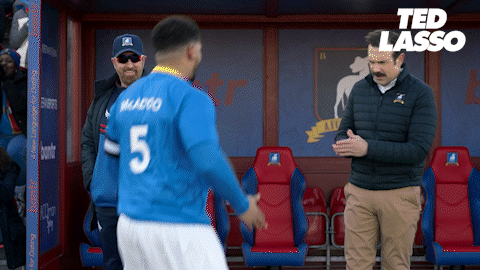
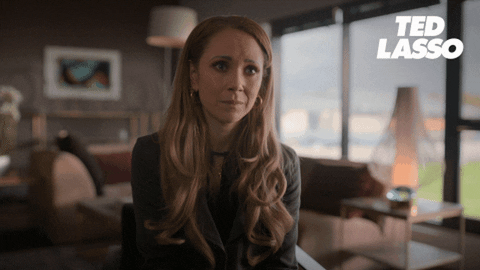

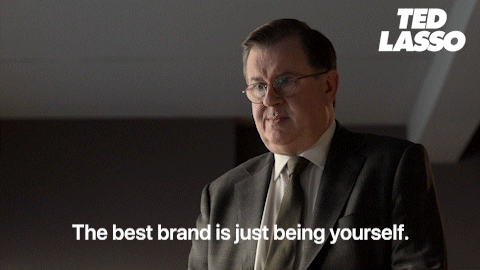

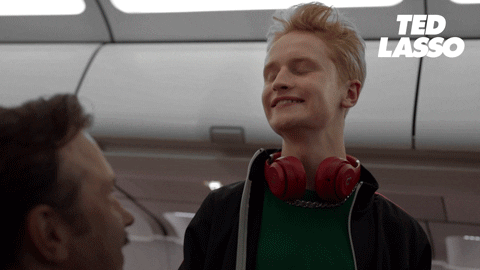
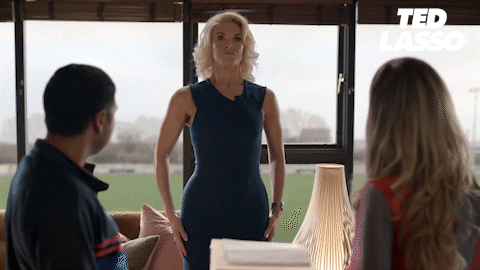
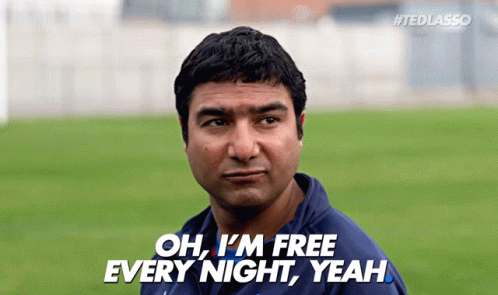
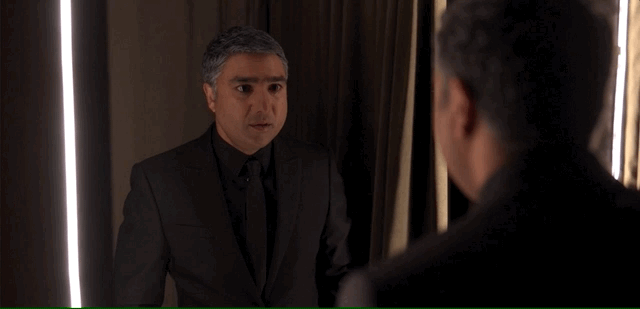

I love this and I love that show! <3